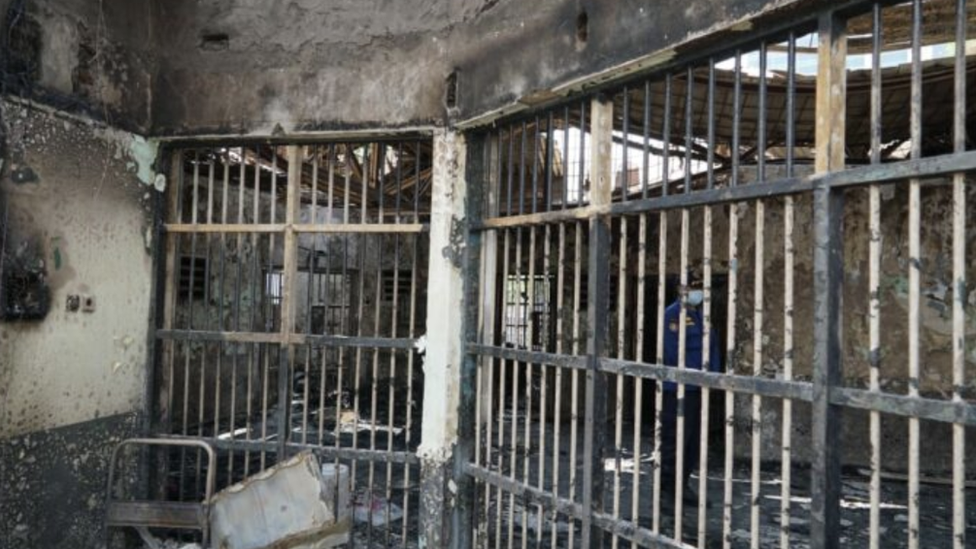Indonesia prison fire: Tangerang jail blaze kills 41 inmates
- Published

There were far more inmates in the worst-affected block than the capacity allowed
Forty-one prisoners have died after a fire swept through an overcrowded jail near Indonesia's capital, Jakarta.
The blaze at Tangerang prison broke out on Wednesday as most of the inmates slept. Guards unlocked some cells but had to leave as the fire raged.
There were 122 inmates staying in the worst-affected Block C - far more than the 40-person capacity.
Two foreign victims, inmates from Portugal and South Africa, are among the dead.
Indonesia's Minister of Law and Human Rights Yasonna Laoly said in a press conference that the embassies of the respective countries had been informed.
Eight people were seriously injured and dozens more had minor injuries, he said.
Television footage showed thick smoke billowing from the prison complex as the fire raged. It started at about 01:45 local time (18:45 GMT Tuesday) and was put out just over an hour later.
"The fire spread quickly and there was no time to open some cells... When the guards found out, the fire had already spread, and that's where we found the victims," Mr Yasonna told a press conference.
He said that an electrical short-circuit was thought to be the cause of the blaze, although this was still being investigated.
The jail was built in 1972 and its electrical system had not been updated since then, he said.
The block mainly housed inmates held for drug-related offences.
Of the victims, one was reported to be a murder convict, another had been found guilty of terrorism, and the rest were in prison for crimes involving drugs.
Dr Hilwani from Tangerang General Hospital told Reuters some of the bodies were so badly burned they could not be identified. DNA tests are being used.
One relative of a victim, Marlinah, told the AFP news agency outside the hospital: "I saw a viral video of the fire. Then I heard that my brother might have been killed. Then we rushed here. All we hope for now is that the procedure will not be too complicated so we can bring my brother's body for burial."
Only 15 guards were on duty for the entire building, which housed 2,000 inmates - a far higher number than its intended 600-person capacity.
Prison overcapacity is a persistent problem in Indonesian jails.

Some of the bodies were so badly burned they could not be identified